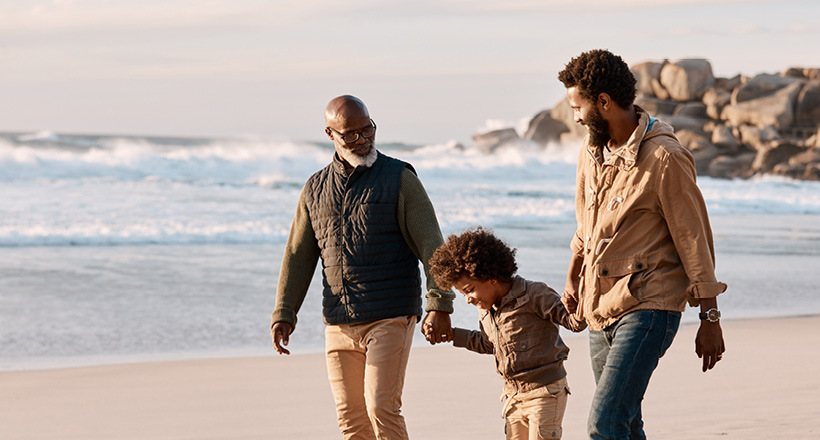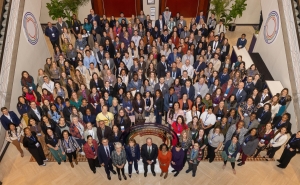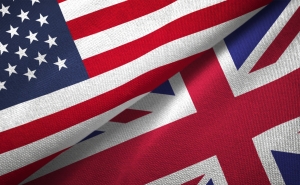The Black Men’s Health Project

A vision to improve the lives of Black men
Both of Roland J. Thorpe Jr.’s grandfathers died in their 60s of heart disease. They should have lived longer, says Thorpe, PhD, MS, a professor in Health, Behavior and Society, but certain circumstances likely shortened their lives. They were Black men who lived in the South and rarely went to the doctor for preventive care.
“Many Black men believe in health repair instead of health maintenance,” says Thorpe, founding director of the Program for Research on Men's Health at the Center for Health Disparities Solutions. “You show up at the ER with a condition that often times could have been prevented through checkups.”
With an average life expectancy of 72, Black men have the shortest lifespan of all groups by race and gender—except Native American men.
As principal investigator of the Black Men’s Health Project—a collaboration between the Bloomberg School, Tulane School of Public Health and Tropical Medicine, and Michigan State University—Thorpe wants to disrupt health patterns that have taken a toll on generations of Black men.
Here, he discusses the work and goals of the Black Men’s Health Project, which, through a survey of 5,000 Black men, is assembling the first national data set focused exclusively on their health.
Why is there a need for the Black Men’s Health Project?
Black men have one of the poorest health profiles in the U.S., but we’re hidden in plain sight. When I started to look around in this area a number of years ago, all I could find was just basic numbers on health indicators by group.
One thing that’s missing from the paucity of research on Black men’s health is data on key determinants of health such as the religiosity, spirituality, stress, incarceration, racism, and segregation that affect a high proportion of Black men. Studies have looked at some of those determinants, but what makes us unique is that we’ve included many of those in our study at baseline to see how they operate synergistically and independently to impact the health and well-being of Black men.
How do social conditions like racism, segregation, and discrimination affect Black men’s health?
These structural forces have been in place for years to the detriment of the health and well-being of Black men. We hope the study will shed light on how they actually work together to impact Black men’s health.
We do know that highly segregated areas often exist with determinants related to poor health—particularly among Black men—such as high crime, concentrated poverty, sub-standard housing conditions, and low-performing education systems.
Historically, you can look back to the unequal distribution of benefits of the GI Bill between Black men and white men, which, I believe, has led to some of the huge wealth disparities that we see now. It prohibited Black men from doing things that white men were able to do that put them on a different trajectory to building wealth—and the intergenerational transfer of wealth—and is a contributor to the poor health of Blacks.
The Tuskegee Syphilis Study often comes up in discussions of Black men’s health. How has the collective trauma of the study had a lasting effect on the health of Black men?
[The Tuskegee Study of Untreated Syphilis in the Negro Male, conducted from 1932 to 1972, knowingly withheld treatment for syphilis to study the disease trajectory in Black men.]
The study has had a large impact on how Black men approach the medical system, particularly among Black men who have lived in the South. Neither of my grandfathers would engage with the health care system, and they told me that they had no trust in the system because of what happened in Tuskegee. When I was doing earlier work, talking to focus groups in North Carolina, older Black men raised the same issue of mistrust of the health system because they’re afraid of what the doctors have done. It [the study] has also had an impact on Black men’s engagement with research because they think similar things may occur.
There have been worldwide protests against police killings of Black men. Is it possible that this movement might lead to greater recognition of Black men’s health concerns?
I don’t know many Black men who haven’t had some experience with the criminal justice system or law enforcement, either in a car, in stores—you walk in a store and you’re racially profiled—and that has to have some psychological impact. It’s another layer of stress. There might be space to talk about it with people who are willing to listen and not blow it off as just Black men complaining.
Going forward, in a possible second wave of the study, we’re hoping to get additional funding to explore the impact of COVID-19 and police brutality on Black men’s health.
How do you envision that this project will ultimately improve the health of Black men?
We want to make the data available as a resource so that other scholars can use it to ask more questions. And we want to share our findings with stakeholders like community organizations, health departments, and lawmakers to create better, healthier lives for Black men.
I’m excited about that because one of the key ways you enact change is to get the evidence base and let it inform how we can develop health-promoting strategies, health-promoting interventions, and policy-relevant solutions.
Interview conducted by Jackie Powder





